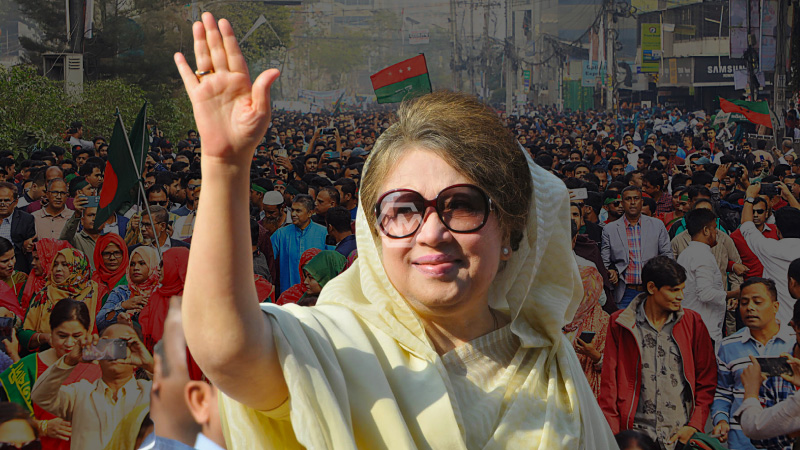- Former PM Khaleda Zia returns to Bangladesh after medical treatment in London.
- Her arrival boosts pressure on the interim government to hold elections.
- The BNP sees her return as a symbolic turning point for democratic transition.
Khaleda Zia’s return after months abroad comes at a crucial moment for Bangladesh’s political landscape. Her presence strengthens the BNP’s position as it demands that interim Prime Minister Muhammad Yunus’ administration commit to timely elections.
The return was facilitated by Qatar’s Emir and greeted with large crowds of enthusiastic supporters in Dhaka, highlighting the depth of public sentiment surrounding Zia’s leadership.
Zia’s Comeback Reshapes Bangladesh’s Road to Elections
Khaleda Zia’s reappearance in Bangladesh after her medical stay in London re-centers her as a key political figure at a time when the country is in flux. Her arrival signals a strategic effort by the BNP to reclaim its place in the political mainstream, especially as frustrations grow over delays in setting an election date.
The government led by Nobel laureate Muhammad Yunus has so far walked a fine line, promising elections between December and June, while trying to implement reforms. However, mounting domestic and international pressure could make it harder to delay democratic proceedings without facing criticism.
Symbolism plays a major role here. Zia, arriving in a wheelchair and welcomed by massive crowds, presents a powerful contrast to Hasina, who remains in exile. This shift may sway public sentiment, especially among undecided voters and civil society groups calling for political transparency.
The involvement of Qatar in arranging her travel also suggests a degree of international attention on Bangladesh’s transition. Regional players may see stability in Dhaka as crucial, especially given Bangladesh’s strategic position in South Asia and its growing economic ties.
Khaleda Zia’s return injects new urgency into Bangladesh’s democratic process, positioning her as a catalyst in what could become a decisive moment for the country’s future governance.
“Democracy is not just the right to vote, it is the right to live in dignity.” – Naomi Klein



